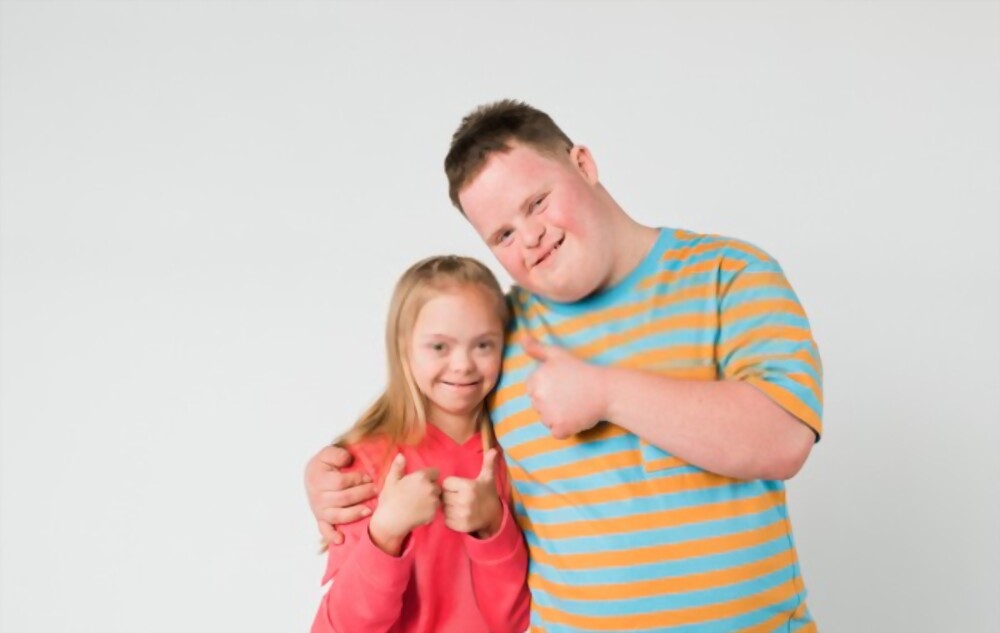An Insight into Prader-Willi Syndrome (PWS)
Prader-Willi Syndrome (PWS) is a complex genetic disorder that affects multiple aspects of an individual's life. From physical and mental health to behavior and intellectual abilities, PWS can impact every facet of a person's well-being. But what exactly is Prader-Willi Syndrome, and how does it affect those who have it? In this comprehensive guide, we'll delve into the causes, symptoms, diagnosis, treatment, and management of PWS, as well as discuss the support available for those living with the condition. By understanding PWS, we can work together to improve the quality of life for those affected by this rare disorder.
1. What is Prader-Willi Syndrome?
Prader-Willi Syndrome (PWS) is a rare genetic disorder that affects approximately one in 15,000 to 30,000 individuals worldwide. It is characterized by a range of physical, mental, and behavioural symptoms that can vary in severity from person to person. Some of the most common symptoms of PWS include:
- Low muscle tone and poor motor skills
- Insatiable appetite and obesity
- Intellectual disability and learning difficulties
- Behavioural problems, such as temper tantrums and stubbornness
- Growth hormone deficiency
- Delayed puberty and sexual development
PWS is a lifelong condition, and there is currently no cure. However, with appropriate treatment and management, individuals with PWS can lead fulfilling lives and achieve a high quality of life.
2. Causes of PWS
Prader Willi Syndrome is caused by the absence or dysfunction of specific genes on chromosome 15. In most cases, this occurs due to a deletion of genetic material from the paternal chromosome 15. However, PWS can also result from maternal uniparental disomy, in which an individual inherits both copies of chromosome 15 from their mother. In rare cases, PWS can be caused by an imprinting defect or a mutation in the imprinting center.
It's important to note that PWS is not inherited in a typical dominant or recessive pattern. Instead, it is an example of genomic imprinting, a process that involves the selective expression of genes based on their parental origin. This means that the risk of having a child with PWS is not increased for parents who already have a child with the condition.
3. Symptoms and Effects of PWS
The symptoms of Prader-Willi Syndrome can be divided into two main categories: physical symptoms and mental/behavioural symptoms. Some of the most common physical symptoms of PWS include:
- Low muscle tone (hypotonia) and poor motor skills
- Feeding difficulties and failure to thrive in infancy
- Short stature and slow growth
- Small hands and feet
- Almond-shaped eyes and a narrow forehead
- Obesity due to an insatiable appetite (hyperphagia)
- Sleep apnea and other sleep-related issues
Mental and behavioral symptoms of PWS can include:
- Intellectual disability and learning difficulties
- Poor social skills and difficulty forming relationships
- Behavioral problems, such as temper tantrums, stubbornness, and compulsive behaviors
- Anxiety, depression, and mood swings
4. Diagnosing Prader-Willi Syndrome
The diagnosis of PWS is typically made through a combination of clinical observation and genetic testing. A healthcare professional may suspect PWS based on the presence of characteristic symptoms, such as hypotonia, feeding difficulties, and developmental delays. Genetic testing can then be used to confirm the diagnosis by identifying the specific genetic abnormality responsible for the condition.
Early diagnosis of PWS is crucial, as it allows for early intervention and treatment, which can significantly improve the quality of life for those affected by the condition.
5. Treatment and Management of PWS
While there is currently no cure for Prader Willi Syndrome, a variety of treatments and interventions can help manage the symptoms and improve the quality of life for those with the condition. Some of the most common treatment approaches for PWS include:
- Growth hormone therapy to improve growth, muscle tone, and bone density
- Nutritional management and dietary restrictions to control weight and prevent obesity
- Physical, occupational, and speech therapy to improve motor skills, coordination, and communication
- Behavioral therapy and counselling to address emotional and behavioural issues
- Medications to treat sleep apnea, anxiety, depression, and other related conditions
6. Support for Individuals with PWS and Their Families
Living with Prader-Willi Syndrome can be challenging, not only for the individual with the condition but also for their families and caregivers. Fortunately, there are numerous resources and support networks available to help those affected by PWS navigate the challenges of the disorder. Some of these resources include:
- Prader-Willi Syndrome Association (PWSA): A national organization that provides information, advocacy, and support for individuals with PWS and their families.
- Local support groups: Many communities have support groups for families affected by PWS, which can offer emotional support, practical advice, and social connections.
- Online forums and social media groups: Connecting with others who are facing similar challenges can provide valuable insight and encouragement.
7. Improving the Quality of Life for Those with PWS
With appropriate treatment, support, and management, individuals with Prader-Willi Syndrome can achieve a high quality of life. Key factors in improving the quality of life for those with PWS include:
- Early diagnosis and intervention
- Comprehensive treatment and management strategies
- Access to appropriate healthcare and support services
- Education and understanding from family, friends, and the wider community
The Importance of Understanding PWS
Prader-Willi Syndrome is a complex and multifaceted disorder that affects every aspect of an individual's life. By understanding the causes, symptoms, diagnosis, treatment, and management of PWS, we can work together to support those affected by the condition and help them achieve the highest possible quality of life. Through education, advocacy, and compassion, we can make a difference in the lives of those living with PWS and their families.












No comments:
Post a Comment